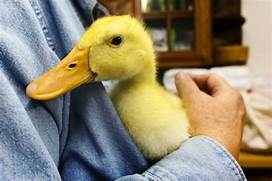Can You Keep a Duck as a Pet?
Ducks make unique pets with their playful personalities and adorable sounds. They are social creatures that require companionship, so it's important to consider your lifestyle and space before deciding to bring a duck home.

Pros of Keeping a Duck as a Pet
1. Friendly and Social: Ducks are known for their friendly and social nature. They enjoy interacting with their owners and can form strong bonds with them.
2. Minimal Space Requirements: Unlike other pets like dogs or cats, ducks don't require a lot of space. A small backyard or even an appropriately sized cage can be suitable for a few ducks.
3. Easy to Care for: Ducks are generally low-maintenance pets. They require a clean and dry shelter, fresh water, and a balanced diet. Regular grooming and veterinary checkups are also essential for their well-being.
Cons of Keeping a Duck as a Pet
1. Noise: Ducks can be quite noisy, especially during mating season. Their loud quacks and calls can be disruptive, particularly if you live in a densely populated area.
2. Mess and Odor: Ducks can be messy, and their droppings can create an unpleasant odor if not cleaned regularly. They may also shed feathers, which can be a nuisance to clean up.
3. Potential Health Risks: Ducks can carry diseases and parasites that can be transmitted to humans. It's crucial to maintain good hygiene practices and keep the duck's environment clean to minimize the risk of infection.
Considerations Before Getting a Duck as a Pet
1. Legal Requirements: Before bringing a duck home, check local regulations to ensure it's legal to keep ducks as pets in your area. Some cities or states may have specific restrictions on owning certain breeds or the number of ducks allowed per household.
2. Proper Housing: Ducks need a safe and comfortable shelter that protects them from extreme weather conditions. The shelter should be draft-free and have adequate ventilation. The ducks should also have access to an outdoor area with water and a place to roam freely.
3. Companionship: Ducks are social creatures and do best when they have companions. It's generally recommended to keep at least two ducks together so they can interact and play with each other.
4. Nutrition and Diet: Ducks have specific dietary needs, including a balanced mix of proteins, carbohydrates, and vitamins. Commercial duck feed is available, but it's essential to provide fresh greens, vegetables, and fruits as part of their diet.
5. Veterinary Care: Ducks require regular veterinary checkups to ensure their health and well-being. Take them to a veterinarian experienced in treating waterfowl for vaccinations, parasite control, and any medical issues that may arise.
Declaration: All article resources on this website, unless otherwise specified or labeled, are collected from online resources. If the content on this website infringes on the legitimate rights and interests of the original author, you can contact this website to delete it.



